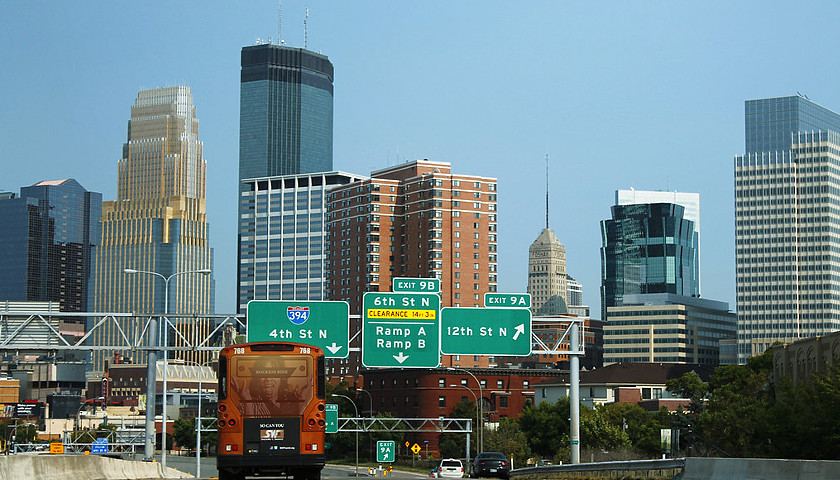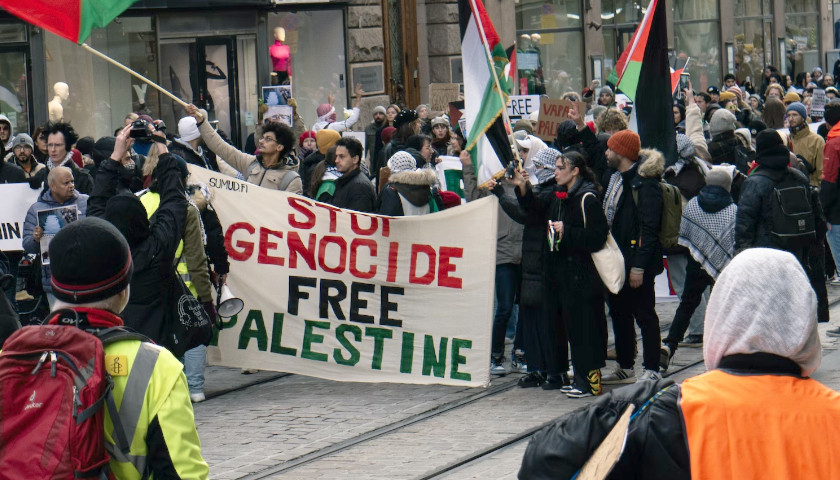Minneapolis has become the first major city in the United States to allow the Muslim call to prayer to be broadcast over speakers five times per day, year-round, including in the early mornings and late evenings.
The Minneapolis City Council voted unanimously Thursday – during the Muslim holy month of Ramadan – to approve an amendment to the city’s noise ordinance that would allow the “adhan” – “Allahu akbar,” or “God is great,” call to prayer to be sounded every day, year-round, five times daily.
In April 2020, the “adhan” was broadcast five times daily only throughout the month of Ramadan, as the Sahan Journal reported.
“The Constitution doesn’t sleep at night,” Jaylani Hussein, executive director of the Minnesota chapter of the Council on American-Islamic Relations (CAIR), said, according to the Star Tribune, adding following the vote that the Minneapolis City Council’s action should demonstrate to the world that a “nation founded on freedom of religion makes good on its promise.”
As The Minnesota Sun reported also at the time, Mayor Jacob Frey (D) said in a press release when the adhan was permitted five times daily during the month of Ramadan:
At a time when physical distancing requires we pray apart, it’s incumbent on leaders to create a sense of togetherness where we can. Adhan provides solidarity and comfort – both of which are essential during a time of crisis. As our Muslim community prepares for Ramadan, we hope the broadcast will offer a measure of stability and reassure our entire city that we are all very much in this together.
Muslims are called to prayer at dawn (about 5:30 a.m. in summer in Minnesota), at noon, at mid-to-late afternoon, at sunset, and when the night sky appears, the Tribune report noted.
Last year, year-round broadcasts of the adhan were permitted, but only between 7:00 a.m. and 10:00 p.m., with the early morning and night calls to prayer often excluded due to the noise ordinance.
According to the Tribune, three city council members – Aisha Chughtai, Jeremiah Ellison and Jamal Osman — are Muslim and stated that prior efforts to expand the adhan “carried the feeling of asking permission, as opposed to exercising a right enjoyed by other religions,” the report observed.
No organized community opposition to the amendment to the noise ordinance presented itself, the report noted as well. Christian and Jewish leaders reportedly supported expanding the hours for the adhan.
“Minneapolis has become a city for all religions,” said Imam Mohammed Dukuly of Masjid An-Nur mosque in Minneapolis, one of the Muslim leaders who came to witness the council’s vote.
The editorial board of the Star Tribune wrote Wednesday prior to the city council’s approval that the vote is a “call to inclusion”:
The change is a sensible one, and if anything it’s overdue. Somalia is more than 99% Muslim. Minnesota is home to the largest Somali population in the United States, with most living in Minneapolis. The call to prayer is a treasured tradition among a significant share of the city’s population, and allowing its broadcast only some of the time is an unnecessary constraint.
“Minneapolis is also the home district of U.S. Rep. Ilhan Omar, a Democrat who has become a lightning rod for anti-Muslim sentiment,” the board continued. “Such sentiment finds vivid expression in the continuing acts of vandalism against Islamic centers.”
“Ironically, attacks like these may serve to make the Muslim community feel a kinship with other persecuted groups,” stated the editorial board.
The Minnesota Sun reached out for comment to the Freedom From Religion Foundation (FFRF) and is awaiting a response.
– – –
Susan Berry, PhD is national education editor at The Star News Network. Email tips to [email protected]
Photo “Minneapolis Skyline” by Formulanone CC2.0





